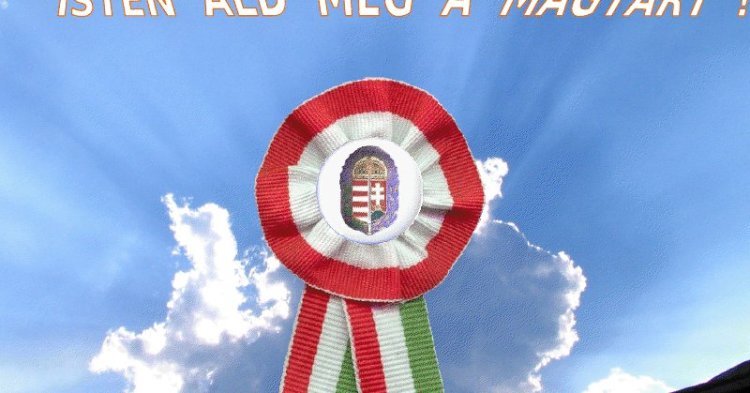After having read one of Krugman’s articles in the New York Times where a certain Kim Lane Scheppele explains her juridic point of view on the new Constitution, I began asking myself questions about what impact might this have on the Hungarians that live on the other side of the border, in Romania.
Leaving Romania, But Not for Hungary
Fidesz, the governing Hungarian party, has recently passed a law stating that anybody who has had a (close) relative born on the former territory of Hungary and that presumably speaks Hungarian can become a Hungarian citizen. I’m saying “presumably speaks Hungarian” because apparently there is no interview and that all you have to hand in is a motivational letter in Hungarian (which, of course, can be written by any literate in Hungarian). This law was passed, politically, in order to increase the Hungarian influence outside its borders and in order to inflate the number of total Hungarian citizens which has recently dropped below the psychological threshold of 10 million. The most obvious effect of this law was that hundreds of ethnic Hungarians have asked for the nationality, mostly because of the access it provides to the EU labor market that still holds some restrictions against the Romanians in some countries and because of the possibility to travel to the US and Canada without a visa. However, the restrictions applied on the Romanians by countries such as Germany are likely to disappear in the two following years because Romania will finally comply the minimum seven-year membership Germany requires in order to completely open its labor market. Countries such as Spain and UK are also holding back Romanians from working in their countries, but they are also disregarded by the EU Commission for this fact. From this point of view, hopes for improvement are legitimate. The New Hungarian Paradox What I was actually asking myself was why any of these ethnic Hungarians, citizens of democratic Romania, would still want a nationality that obliges them to respect a Supreme Law that is far less democratic than the one they are now obliging? Why become a Hungarian citizen? How can Orban think that the the Hungarians abroad would like to adhere to this new-age democratically-born authoritarianism? Is having the priviledge to travel to the US without a visa that appealing?
Some of the people that apply for a visa do it for the labor market opportunities. But these will soon dissappear, as stated above. Others for travelling to North America, but then again, the one who has the money to go there, also has the money to pay for the visa and the chances for not getting the tourist-visa are too slim to be taken into consideration for this target population. Others are already too old to go work abroad and apply for it for sentimental reasons: they feel Hungarians and want to be Hungarians. But if none of these apply, then why want it?
A Less Greater Hungary
I have the impression that sometimes people only believe they think in terms of opportunities and of future prospects of a better life, but they do not actually realize that Hungary is no longer what it used to be: more prosperous and more democratic than communist Romania. Nowadays Hungary has been given the economic country rating of “junk” and is now cutting down on most of the social expenses. Doing nothing and receiving money is no longer a reality even for the Hungarians born this way. The Romanians living close to Hungary (I myself included) have always admired this country for being hospitable, neat and pretty, but also for being cheaper and for having a better quality-price ratio. But this is now only an illusion, a floating myth that did not have the time to disappear, as economic instability is far greater for the forint owners. For sure, having the Romanian nationality and living on the Romanian territory will protect them from this possibly unjust Fidesz driven country and leave them only with the sentimental value of finally being a true Hungarian. But, nevertheless, it exposes them to risks they have never sought for, to causes they never wanted to fight for again and to opportunities that might never come: travelling to the US remains just too expensive.
A Short Constitutional Comparison
As a parenthesis, as far as I know, the European Union has never complained about the Romanian Constitution for being undemocratic (which does not make it a constitutional model, but still, if there’s no smoke, there’s probably no fire either). However, I want to make two highlights at this point:
1. The name of Hungary has officially changed from “The Republic of Hungary” to simply “Hungary”. Romania’s official name is also simply “Romania”. Nobody seems to bother.
2. Hungary now recognizes only 14 official churches. Romania recognizes only 17. This is bad for both of the countries because Hungary used to recognize more than 350 churches before the change, while Romania never did recognize more than 15 Christian churches plus the Jewish and Muslim ones. Nevertheless, even from this point of view, it seems safer to stay on the Romanian side.
I am fully aware of the fact that the points I’ve just highlighted represent just 5% of the constitutional change Hungary is facing. Nevertheless, they do show that some of the problems brought up by the EU officials exist in other Constitutions as well, but at a slightly lesser extent. Parenthesis closed, the BIG juridic issues are still there to stay in the new Hungarian Constitution, exposing the Hungarian citizens to a whole new set of rules.


Follow the comments: |
|
